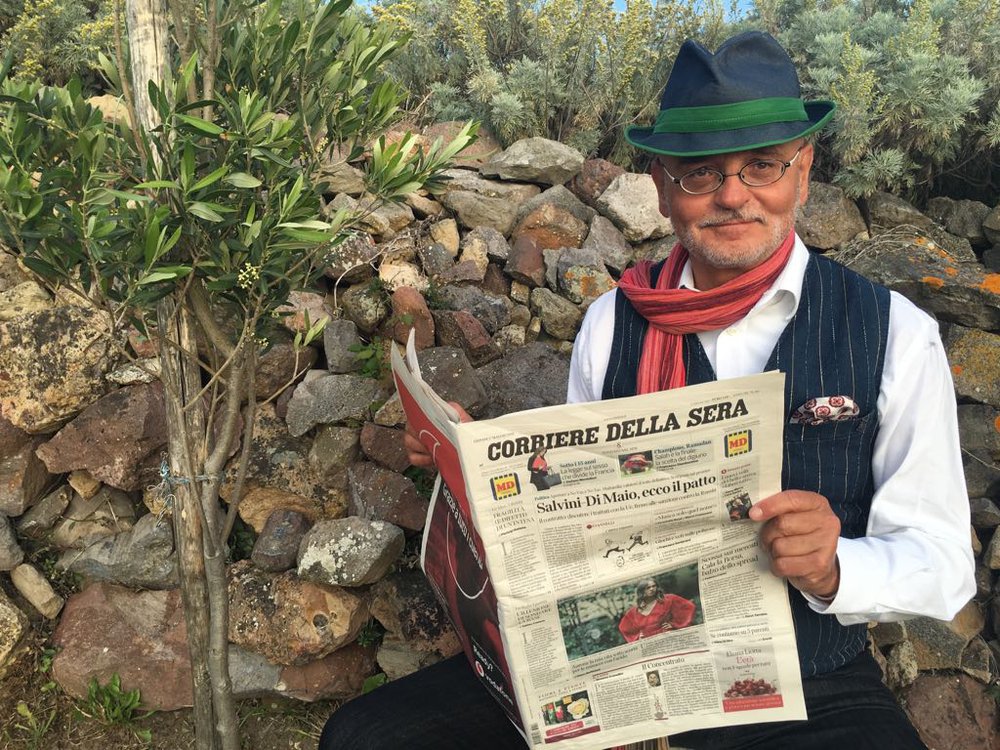
Whenever going places having a look at their written media – what used to be called press :) - gives a glimpse into their thinking, their way of perceiving and interpreting the world. Surely, it helps getting acquainted.
The Swiss press – it also - is undergoing deep changes. Digitization and industrialization being the key words. The strategies of the various media groups are rather different.
The challenge in one sentence: the earning power of the written word tends to shrink sharply. Today, only one media group vigorously follows the strategy to generate its success with the quality of the written word. So much about the backdrop.
As you probably imagine, every region has (or had) its own print media. Living in or near a city, you are likely to encounter these media products, in analogous or digital form:
First, the ubiquitous free papers 20 Minuten, largest paper in the country (a Tamedia product like Tages-Anzeiger), and Blick am Abend, its evening „adversary“ (from Ringier like the tabloid Blick). 20 Minuten has quite the talent to bring you the most „important“ news in brief form. It is very mainstream; an epitome of today’s media world. Political position: „left-liberal“. Language level: a nice tool to get into everyday German.
When you read Blick am Abend you will know everything about the Swiss Cervelat-Prominenz, all the people who are world famous in Switzerland. You will know, which politician lost 5 kg and is now a vegetarian. Political position: whatever, but tilting to the left. This „paper“ aspires to entertain you with its flimsy „quality“ after a long day at work on your commute home. Language level: very handy to acquire your small talk vocabulary and topics.
Now let’s look at the pay-press:
The Tages-Anzeiger is one of German speaking Switzerland’s leading papers. Politically leftish its publishing house Tamedia believes in diversifying outside the news business. E.g. ricardo.ch is part of Tamedia. Industrializing the media does have an effect on quality.
The Tagi, as we call the Tages- Anzeiger, has lost on journalistic flight level, but is still a good read. It is part of the European and American international left-wing mainstream. Reading the Tagi will get you on a good conversation level regarding content and language. The Tagi has taken aboard several formerly independent titles, such as the Berner Zeitung and the Bund – both in Bern, obviously, as well as papers in Latin Switzerland. The Bund is a real loss in our media landscape.
An interesting addition to Tamedia/Tagi will be the Basler Zeitung. This formerly outstanding regional media company had lost almost all of its economic traction and had been taken over by a right-wing politician from Zurich. This very controversial person plus the polemic stance of the editor-in-chief, a sharp-tongued, bright witted intellectual with an inclination towards grandiosity were just too much for Basel. They gave up and sold the Basler Zeitung to Tamedia/Tagi.
Basel – to give you a small glimpse into the diversity of this little country by way of a little detour – is a quaint, highly cultural city, limiting controversy to its famous Fasnacht. Despite its very high percentage of foreign population and its globalized pharmaceutical sector, the public attitude is thoroughly protestant: economically and culturally oriented and very well behaved; be rich before God, but for God’s sake, don‘t show it.
The Tagi-Basler Zeitung will fit nicely into the green-left political arena of this city.
Of course, you will find Blick everywhere, the Swiss German tabloid. It is certainly not as aggressive as the German Bild Zeitung and a far cry in this regard from the English tabloids. You might have noticed: we do not like aggressivity, or rather: we despise it. So Blick is a tame tabloid. And it does actually venture into serious politics. So, you have a bit of everything. And certainly, lots of sports. Blick belongs to Ringier Group, the second largest media company after Tamedia.
If you live in the Mittelland you will encounter different regional titles such as Aargauer Zeitung, Solothurner Zeitung and others which now belong to the AZ Medien, a Aargau based company which also runs www.watson.ch, their infotainment channel. The group’s journalism is medium range, locally oriented and regarding national and international news work mainstream.
If you have read this much and this far, you are ready for NZZ, the Neue Zürcher Zeitung, one of the world’s quality papers. It truly is a very worthwhile read, really. A center to right liberal independent publication. Independent! Not mainstream. You do not have to share their opinion, their logic is transparent, their reporting and opinion-sharing is kept apart so you can form your own thinking and view. They have one strong ideology: free trade. Reading NZZ will get you into real good German. The NZZ-group wants to win with its publications, not with side businesses – in a world, where the marginal revenue of words is shrinking.
So, this is it for now. Next time something on weekly and monthly publications.
Kuno Hämisegger is a father of two. He is an economist by profession and into politics by vocation: political analyst and expert in advocacy for more than three decades. The media, of course, play an important role ever since he took a liking of politics. He had been portrayed, interviewed, and reported upon by different media - so he is well aware of the quality of the different media and the secondary realities they produce.

 Love German: Beruf
Love German: Beruf Love German: Mutterschaftsurlaub
Love German: Mutterschaftsurlaub Love German: WG
Love German: WG